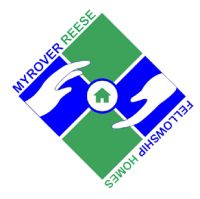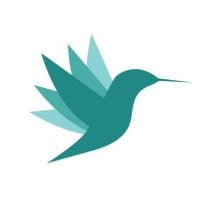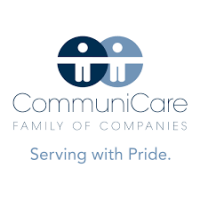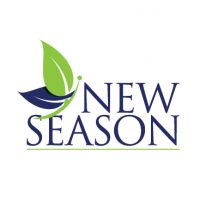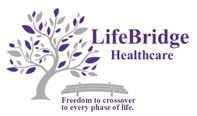Renew Counseling Center
Drug Rehab Center in Fayetteville, North Carolina
Renew Counseling Center is a CARF-accredited addiction treatment facility in Fayetteville, NC offering comprehensive, personalized services and accepting various payment options to suit individuals' needs and goals.
About This Fayetteville, NC Facility
Renew Counseling Center, a private rehab situated in Hope Mills, North Carolina, specializes in treating individuals struggling with mental health issues and substance abuse. This state-of-the-art facility offers comprehensive, evidence-based therapies and services tailored to meet each client's unique needs.
• Highly trained and experienced professional clinicians and support staff deliver personalized treatment
• Safe and secure environment ensures optimal healing and recovery
• Spiritual guidance and 12-step program support available
Renew Counseling Center is accredited by the Commission on Accreditation of Rehabilitation Facilities (CARF) and licensed by the North Carolina State Department of Health and Human Services. The facility holds memberships in the National Association for Addiction Professionals (NAADAC) and the North Carolina Mental Health Counselors Association (NCMHCA).
The center treats a range of addictions and mental health issues, providing various levels of care. Treatment methods include cognitive-behavioral therapy (CBT), dialectical behavior therapy (DBT), relapse prevention, stress management, trauma-informed practices, and family education, all delivered in a supportive, healing environment.
Genders
Ages
Modality
Additional
Religion / Spirituality
Christian
Accreditations

CARF
The Commission on Accreditation of Rehabilitation Facilities (CARF) is a non-profit organization that specifically accredits rehab organizations. Founded in 1966, CARF's, mission is to help service providers like rehab facilities maintain high standards of care.
Conditions and Issues Treated
Rehab centers exist in Fayetteville, NC to help individuals bounce back from substance abuse, which is an umbrella term for drug and alcohol addiction. Drug addiction refers to the use of illegal drugs and improper use of prescription drugs. Centers like Renew Counseling Center provide individuals a chance to access individual and group therapy that can be monumental for recovery.
Substance abuse includes all problems that stem out from using various psychoactive substances. It is also a diagnostic term used by Diagnostic and Statistical Manual of Mental Disorders (DSM-IV) to define the mental and physical impairment or distress caused by misuse and overuse of certain substances in a period of 12 months.
Opioid addiction involves addiction to legal or illegal opioids. It may happen very quickly with any opioid use. Sometimes within a matter of days. Opioid addiction is a known as a high-risk factor for future heroin addiction.
Opioid withdrawal can be extremely uncomfortable and lead the user to continue to use even if they want to quit. Stopping using an opioid requires careful medical observation. Sometimes the withdrawal can persist for many weeks, which can put the user at a high risk for relapse.
It is recommended to receive inpatient treatment and a medically supervised detox like those offered at Renew Counseling Center in Fayetteville, NC, NC, to manage the withdrawal process while learning lasting tools to maintain recovery. In some circumstances medications can be used to manage opioid addiction.
People with dual diagnosis have coexisting addiction and a mental disorder. 9.2 million US adults had a co-occurring disorder in 2018, so not just limited to North Carolina residents. Best treatment combines medication, psychotherapy (talk therapy), support group, and inpatient rehabilitation. Sometimes, complementary therapies – yoga, massage, and acupuncture – may also be used.
Levels of Care Offered
This center offers a variety of custom treatment tailored to individual recovery. Currently available are Aftercare Support, Detox, Dual-Diagnosis, Intensive Outpatient, Intervention, Outpatient, with additional therapies available as listed below.
Detoxification is a process that allows the patient to stop using opioids without experiencing severe withdrawal symptoms. This can be necessary for those who have been addicted for a long period of time or who are struggling with chronic pain.
During this process, addicts will receive medication and psychological support from doctors and other medical professionals until they can control their cravings.
Intensive outpatient programs mostly conduct meetings on weekdays. Group therapy is the main element in most intensive outpatient programs. Most IOPs last for about 90 days and include drug use monitoring and testing. A North Carolina IOP, like what’s offerd at Renew Counseling Center, take much more time than a standard outpatient program. Some programs offer other services as well, such as employment assistance and medication management.
Outpatient treatment can be considered the lowest intensity level of addiction treatment in Fayetteville, NC. It is ideal for early phase addiction or lower intensity addictions. Renew Counseling Center peer group support, 12-step programs, and individual counseling may still be involved.
An intervention is a meeting held by families and friends of the addicted party, managed by Renew Counseling Center. It lets the person know that their loved ones are concerned about them. It is intended to make the addicted party agree to get help.
Interventions are often hosted by a mental health professional in North Carolina who knows how to communicate with people dealing with addiction. These intervention services can make all the difference when it comes to getting loved ones to agree to treatment.
After treatment, addiction treatment can be frightening for newly sober people. Aftercare support provided by Renew Counseling Center is designed to give resources and help on a continued basis. It can involve finding housing in and around North Carolina, setting up 12-step meeting groups, continued medical monitoring, and counseling.
Renew Counseling Center‘s Therapies & Programs
Individual therapy aims to identify the core issues that would have led the patient to substance abuse and address the root cause effectively. Patients find the therapist as a person who they can trust. It helps them to open up and discuss personal and sensitive issues, which they may not be comfortable discussing in a group.
Family therapy is a set of therapeutic approaches that assumes that the entire family is a system. It utilizes the strengths and resources of the family to help the patient refrain from resorting to substance abuse. It helps to repair relationships and improve communication between family members.
Unresolved trauma is often a key reason why many patients resorted to substance abuse. Trauma therapy refers to treatment wherein specialist therapists help the patients to resolve the trauma that led the patients to substance abuse. The trauma could be physical abuse, sexual abuse, war, natural disasters, divorce, accident, loss of a loved one, etc. Thinking of these traumatic events causes emotional disturbances like anxiety, depression and results in addiction. If trauma is the primary cause of substance abuse, then both issues must be addressed. Otherwise, there is a risk of relapse. Trauma therapy also improves the cognitive functions and provides long term benefits.
Dialectical Behavior Therapy (DBT) is an improved version of Cognitive Behavioral Therapy (CBT). DBT is a treatment of choice for people suffering from self-harming behaviors characterized by cutting and suicidal thoughts or inclinations.
This treatment is developed to help individuals recognize their thought patterns, behaviors, and feelings. It has demonstrated its effectiveness for people that are finding it difficult to control their emotions and urges. Conditions such as obsessive-compulsive disorder and borderline personality disorder also benefit from DBT as it imparts individuals stress-management techniques and enhanced self-esteem so they can sustain their sobriety by reducing the impact of triggers and out-of-control emotions.
Rational Emotive Behavior Therapy (REBT) sees a person suffering from substance addiction to have illogical reasoning, counterproductive actions, and does not see things clearly. Due to this, REBT deals with cognition, images, and behavior extensively to rectify the client’s bad habits. REBT pushes an individual to become more reasonable and choose a life without the repercussions of addictions.
Patients at Renew Counseling Center in Fayetteville, NC learn how to self-soothe by conducting rational self-counseling. REBT provides their patients with the skill sets necessary in handling problems all by themselves, without seeking professional help. The process calls for practice, reiteration, and bolstering the new way of thinking being introduced to the patient.
Patient Experience
Creative Arts
The process of creating art can be a healing form of self-expression. Creative arts therapy uses painting, music, poetry and other methods of individual creation to release negative feelings. It is also an effective method of dealing with anxiety and accessing emotions which may appear too difficult to deal with in other ways. Integrating feelings and thoughts together is the goal for a more balanced approach to life in Fayetteville, NC.
Experiential Therapy at Renew Counseling Center
Experiential therapy works on the principle that the perception of individuals determines their behavior. It is different from medication and talk therapy and suits those who have difficulty in expressing themselves and interact. Experiential therapy works by using tools and activities to recreate past experiences and encourages the release of suppressed thoughts that were responsible for the negative feelings and drug addiction.
Role-playing, arts and crafts, music, animal care, rock climbing, etc. are some of the activities used in this therapy. Gradually the individual will experience calmness and love and change their perception positively. Other than drug addiction, Experiential therapy is useful in various behavioral and eating disorders.
Payment Options Accepted
For specific insurance or payment methods please contact us.
Is your insurance accepted?
Ask an expert, call (888) 674-0062
Additional Details
Specifics, location, and helpful extra information.
Fayetteville, North Carolina 28304 Phone Number(910) 729-6770 Meta DetailsUpdated April 15, 2024
Staff Verified
Patient Reviews
There are no reviews yet. Be the first one to write one.
Fayetteville, North Carolina Addiction Information
North Carolina ranks 29th in the nation for overall substance abuse. Many of the drugs abused in the state are illicit, and many of these are opioids. Prescription opioids are readily available due to the high rates of medical workers prescribing them. The number of prescriptions has increased tenfold since the 1980's. Opioid overdoses are the most common type of death in North Carolina.
The number of drug-related deaths in Fayetteville, NC increased by 60% from 2008 to 2010. The number of individuals that needed drug or alcohol treatment in the city was 570. Marijuana-related drug crimes account for 600 arrests per year. Treatment such as recovery groups are made up of recovering addicts that support each other's sobriety efforts, additional treatments are also available in Fayetteville.
Treatment in Nearby Cities
- Boone, NC (173.5 mi.)
- Williamston, NC (122.2 mi.)
- Old Fort, NC (186.4 mi.)
- Hudson, NC (153.8 mi.)
- Havelock, NC (117.4 mi.)
Centers near Renew Counseling Center
The facility name, logo and brand are the property and registered trademarks of Renew Counseling Center, and are being used for identification and informational purposes only. Use of these names, logos and brands shall not imply endorsement. RehabNow.org is not affiliated with or sponsored by Renew Counseling Center.


